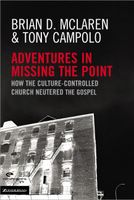But my recent sermon series (How to Find Faith in a World of Doubt) led me to address the need for evidence for God. I read two excellent books, The Case for a Creator and More Than Meets the Eye. I was surprised how science had swung so much in the past thirty years to support faith rather than contradict it. I admit I gave these books a quick read, but I came up with six observations that I think can be converted into evidence for God if someone chose to believe that God was behind these observations. Here they are;
- The universe was created. It didn't always exist. Einstein's theory tells us that there was a starting point to the universe. And it came from nothing.
- The earth is located in a life-friendly pocket of a life-threatening universe. What are the odds of earth being so perfectly located in a place that supports life? (Not to mention the coincidence that life was created in the first place).
- Many variables have converged to make life possible. Science has proven that there is an incredible number of variables that have been calibrated to infintisimal decimal points to sustain life. It's as if they have all lined up on a razor's edge - if they were to tip in one direction or another, life would not be sustainable on earth.
- Irreducibly complex entities exist. Entities like the human cell or the eyeball need to have every component in place to exist. So how does an entity like this evolve, one mutation at a time?
- DNA is a program for life. There are three billion pairings in the human genome. It looks very much like a computer code. We would never suggest that a computer program spontaneously evolved over time yet we are comfortable to say that this happened in DNA.
- Human beings have consciousness. Why? How? We take our ability to reflect and observe for granted yet it is unique to humans, at least at the sophisticated level that it is.
There is an eight page summary of The Case for a Creator on our website. But the book itself is a great read if you have the time. (By the way, for those of you in the know, the writer of the summary made a mistake when he referred to the type of galaxy that we are in.)





